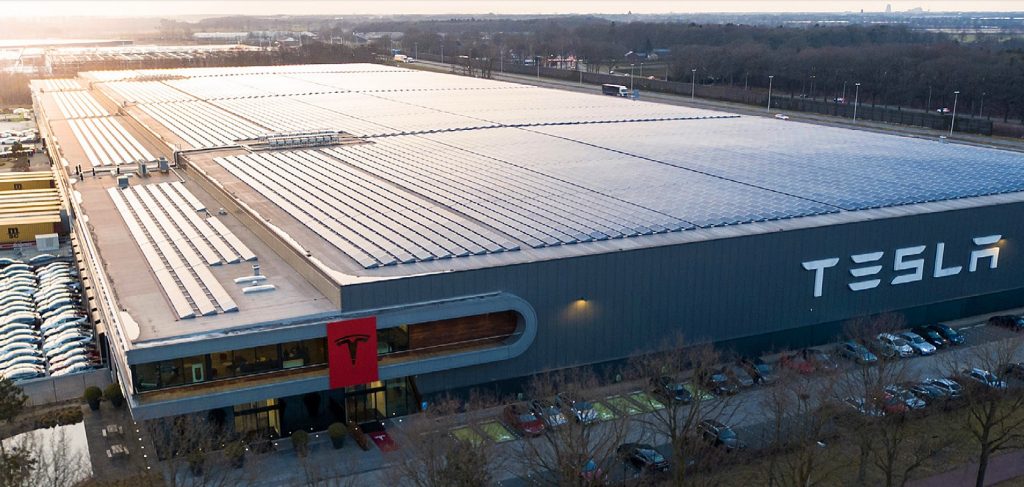In recent months, Tesla Inc. (TSLA), the electric vehicle (EV) pioneer led by Elon Musk, has seen its share price take a significant hit, shedding over 28% since hitting a record high in December 2024. This article explores the multifaceted reasons contributing to this downturn, reflecting the complex interplay of market dynamics, corporate performance, and external economic factors.
Disappointing Deliveries and Financial Performance
The immediate trigger for Tesla's stock decline was the company's fourth-quarter 2024 delivery numbers, which not only missed analysts' expectations but also marked the first annual drop in deliveries since Tesla went public. The company delivered 495,570 vehicles in Q4, falling short of the consensus estimate of just under 507,000. This underperformance was a stark contrast to the enthusiasm that had driven the stock to unprecedented heights, fueled by expectations of continued exponential growth.
Furthermore, Tesla's earnings per share (EPS) missed analyst estimates, and automotive sales fell by 8% year over year, primarily due to price cuts across its vehicle lineup. These cuts were an attempt to spur demand but at the cost of squeezing profit margins. Analysts from firms like Canaccord Genuity and Morgan Stanley have expressed concerns over Tesla's weak margins and the slow rollout of full self-driving technology in key markets like Europe and China.
Economic Headwinds and Market Sentiment
The broader economic environment has not been kind to Tesla. High interest rates have made financing car purchases more expensive, dampening consumer demand for high-ticket items like EVs. Additionally, the anticipation of potential changes in EV tax credits and tariffs, particularly following the U.S. presidential election, has introduced uncertainty into the market. President Trump's policies, including proposed changes to EV incentives, could impact Tesla's profitability and market positioning.
Increased Competition and Market Share Loss
Tesla is facing stiff competition, particularly from Chinese EV makers like BYD, which overtook Tesla as the world's biggest seller of electric cars towards the end of 2023. In key markets like Germany, Tesla's market share has significantly declined. The company's aggressive price reductions have not only affected its profit margins but have also failed to prevent a sales drop, signaling perhaps a saturation or a shift in consumer preference towards competitors offering more affordable options.

Elon Musk's Political and Public Statements
Elon Musk's increasing involvement in political discourse and his public statements have had a polarizing effect on Tesla's brand. His support for certain political figures and ideologies has alienated some of the company's traditional customer base, who are often more aligned with environmental and progressive causes. This has potentially influenced buying decisions, with some customers expressing reluctance to continue supporting Tesla due to Musk's political stance.
Analyst Perspectives and Stock Ratings
The analyst community is divided on Tesla's future trajectory. While some like Wedbush Securities see potential for a significant rally in 2025, citing Tesla's advancements in AI and autonomous driving technology, others from firms like JPMorgan are notably bearish, pointing to overvaluation and demand concerns. The average price target among analysts suggests that the stock might have further to fall, with expectations of a 28% drop to reach the consensus target of $292.03.
Looking Ahead
Despite the current challenges, Tesla's long-term vision in autonomous driving, robotics, and energy storage could still drive future growth. However, the immediate future looks volatile with uncertainties around demand, pricing strategy, and political climate. Investors are watching closely for signs of recovery or further decline, with many urging caution due to Tesla's high valuation relative to its operational and financial performance.
In conclusion, Tesla's share price fall is a complex issue, not attributable to a single factor but rather a confluence of disappointing sales figures, economic conditions, increased competition, leadership controversies, and market sentiment. As Tesla navigates these choppy waters, the resilience of its brand and the execution of its innovative projects will be critical in determining its stock's recovery path.
